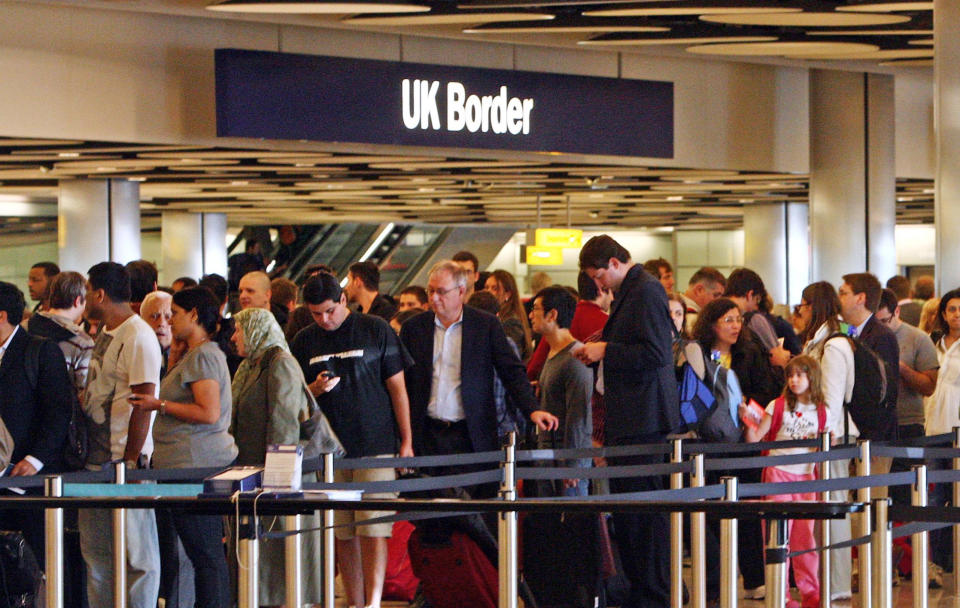Firms welcome Boris Johnson's immigration plans — but the devil's in the detail

Business leaders have welcomed new prime minister Boris Johnson’s plans to shake up Britain’s immigration system, with signs that current targets limiting numbers coming into the UK could be ditched.
The Confederation of British Industry (CBI) said scrapping restrictive targets would be “hugely welcome” for business leaders to help them recruit from around the world.
The new UK prime minister pledged to introduce an Australian-style, points-based immigration system on Thursday. Home office minister Kit Malthouse called his new boss “fairly liberal” on migration on Friday morning.
The prime minister’s spokesman also said Johnson made clear he “wasn’t interested in a numbers game.”
Speculation is growing that Johnson could scrap the current goal of cutting migration to the “tens of thousands,” a target introduced by David Cameron and upheld by Theresa May despite repeated failures to reach it.
READ MORE: How Boris Johnson’s pledges to ‘unleash’ the UK economy stack up
An Australian-style, points-based system is widely supported in principle not only by business but also the public, according to opinion polls.
It allows migrants to enter only if they score enough ‘points’ by meeting the government’s criteria, which can reflect key priorities like skill, education, or pay levels and sectors with staff shortages.
Some firms think these changes will make it easier to recruit from abroad, but some voters think it will mean fewer migrants and only ones thought to benefit the UK economy.
The debate will strike many migration experts as a strange one, because Britain already has a partly points-based immigration system — and points are only used for a tiny number of migrants to Australia.
Johnson has also not yet spelled out the criteria for entry, or even made clear whether they will be more or less restrictive and mean more or less migration.
READ MORE: Fewer than half of Britons ever expect to earn £30,000 a year
Immigration could rise if there are no caps and all migrants who meet looser rules are allowed to enter, but equally it could fall if the rules on scoring points are much stricter.
Migration Watch, a UK pressure group opposed to large-scale immigration, said on Friday the existing points-based rules had “failed to reduce or even control immigration.”
The lack of detail or clear signals could be seen as understandable given Johnson has just taken office, but it could also be seen as deliberate ambiguity intended to win over both pro- and anti-immigration voters.
The former London mayor has not always struck a liberal tone on the issue, emphasising the need for more control and a system “tougher on those who abuse our hospitality” during the recent leadership campaign.
READ MORE: Goods from around the world ‘could get cheaper under a no-deal Brexit’
The new government has now raised expectations among businesses and liberal supporters of a less strict regime that could allow higher migration.
But it will also have to deal with expectations among Leave voters and Conservative party members that Brexit will bring down immigration.
Johnson’s administration may be able to please one group by reforming Britain’s migration system, but it is likely to struggle to please both.

 Yahoo Finance
Yahoo Finance 